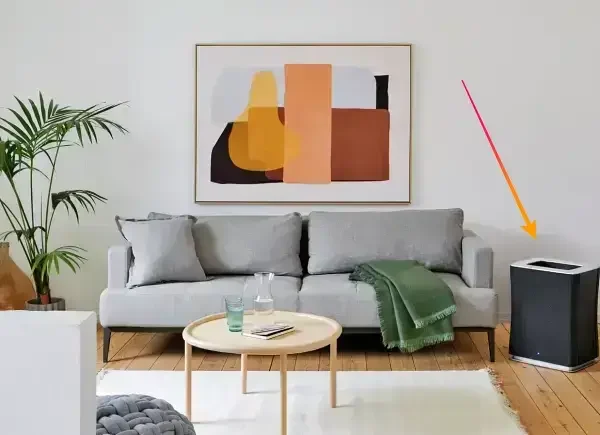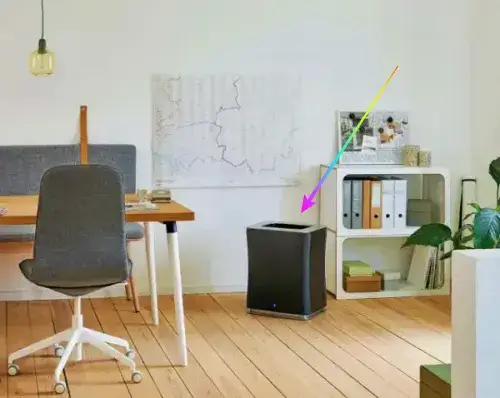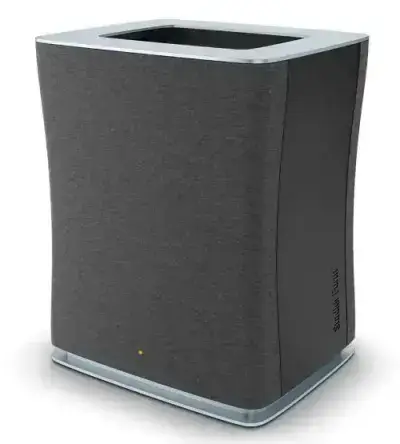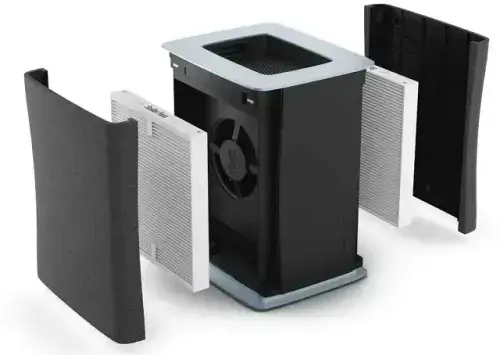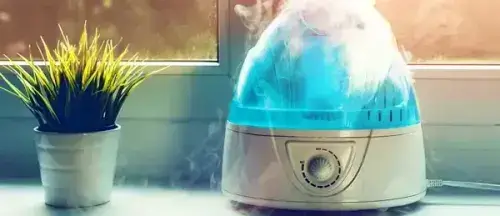Air purifiers. According to official data, 30-40% of the world’s population suffers from allergies. At least half of the cases are associated with pollen allergies that occur during flowering.
Although it does not pose a threat to human life, it has extremely unpleasant symptoms that greatly worsen the quality of life.
Unlike other types of allergies, it is almost impossible to hide from it, because during flowering the allergen is everywhere – on the street, in transport, indoors, etc.
Is it possible to solve this problem at least in your own home with the help of air purifiers? Do air purifiers help with pollen allergies?
Air purifiers, how do work?
An allergy occurs when our immune system overreacts to a specific trigger, which is an allergen. The latter can be anything, even water or just cold air.
However, this type of allergy is rare. Much more often, people are faced with allergies to pollen, dust mites, pet dander, mold, household chemicals, etc.
Due to the immune system’s reaction to these allergens, symptoms such as sneezing, runny nose, itchy eyes, hives on the skin, etc. Occur.
The most unpleasant is the development of asthma in people who have problems with this unpleasant respiratory problem. In this case, the nervous system suffers.
Migraine attacks and general weakness are possible. There are even known cases that allergens can cause epilepsy.
There are only two ways to avoid these symptoms – either by affecting the immune system, which is done by drugs, or by preventing allergens from entering the body by purifying the air.
In fact, air purifiers were created for this purpose.
We have probably all heard of air purifiers, but when choosing an air purifier for your home or workplace, you should consider some key features.
The main function of an air purifier is to ionize and disinfect the air. Its special filters trap coarse dust and allergen particles, protect surfaces from mold (including its toxins) and neutralize various viruses that enter the room.
An air purifier ensures that we breathe cleaner air that does not irritate the nasal mucosa and respiratory tract. It will also give your home a feeling of fresh air and become a modern design accent.
Before choosing an air purifier, you should evaluate the size of the room and choose an air purifier that matches it or one that covers a slightly larger area, thus ensuring that all the necessary space is provided.
It is also worth noting how many times per hour all the air in the room is filtered.
This number depends on the functionality of the device and can be from a few to several times per hour, adjustable automatically or mechanically. Equally important are the electricity consumption and noise level.
How effective are air purifiers?
The effectiveness of an air purifier depends on several factors. One of the main ones is CADR, which stands for Clean Air Delivery Rate.
Accordingly, the higher this indicator, the faster the air purifier will perform its task. CADR is selected taking into account the volume of the room.
How effective are air purifiers? An important characteristic of an air purifier is the speed at which clean air is supplied. The type of filter also affects efficiency. For example, there are purifiers with HyperHEPA filters that capture particles as small as 0.003 microns.
Very effective air purifier Roger big.
Air quality monitoring and control using the app. Removes particles and gases from the air using HEPA and activated carbon filters.
Independent adjustment of cleaning performance thanks to automatic mode. Room size 104m². Roger big removes particles from the air, such as fine dust, allergens and viruses, as well as gases, unpleasant odors and volatile organic compounds.
Textile pre-filter protects Dual Filters™ and extends their service life.
Roger big – an air purifier to combat viruses and bacteria!
Can effectively filter viruses and bacteria from the air. Air purifier Roger Big, helps reduce the risk of viral and bacterial infection even in large rooms.
The impressive functions of the air purifier include a timer, night mode, castors and automatic mode. In automatic mode, the cleaning performance is automatically adjusted according to the air quality.
In addition to the filter, much also depends on the characteristics of the room and even on where the air purifier is installed.
For example, it is not difficult to guess that with hermetically sealed doors and windows, the air purifier will cope with its task more effectively, since there will be no influx of allergens into the room.
Experts recommend.
The installing the air purifier in an open area near a door or window. This will allow it to catch allergens before they have time to spread throughout the room.
In general, a properly selected and properly installed air purifier can significantly reduce the amount of pollen, dust or other particles in the air that cause allergies.
This can significantly reduce allergy symptoms. However, it should be understood that it is almost impossible to purify indoor air 100%.
How to effectively purify indoor air if you ms have allergies or even asthma?
Using an air purifier alone may not be enough to completely relieve allergy symptoms.
Therefore, some recommendations should be followed. You can ventilate the room when you are not there. It is preferable to do this on windless days when the air humidity is high.
How to effectively purify indoor air if you have allergies.
It is recommended to use an air humidifier together with an air purifier.
As soon as the humidity level in the home decreases, a person begins to feel sleepy, dry skin and mucous membranes, but for many, their well-being significantly worsens.
Due to weakened immunity, the general tone of the body decreases, depressive feelings and lack of working capacity are more often observed.
Newborns and children react very sensitively to insufficient air humidity in the room. The skin and mucous membranes of a newborn dry out quickly, which can cause a “stuffy” nose effect.
Air humidifiers.
They work on the principle of natural evaporation of water. All you have to do is pour water into the tank and plug the humidifier into the outlet.
The principle of operation is simple – the air to be purified is sucked into the device and passed through water, which traps very small particles of pollution (dust, pollen, tobacco smoke, etc.).
An important advantage is ease of use – the humidifier functions without noise, is extremely simple to use, and can operate using any water.
Humidifiers are ultrasonic, steam, and combined.
Steam humidifiers are inexpensive but quite effective devices. They improve air quality with cold or warm steam. Cold steam devices do not change the room temperature, so they are also suitable for use in the summer.
In addition, they are safer if there are children or pets at home. The advantage of hot steam humidifiers is quieter operation.
The device works on the principle of boiling water: hot steam enters the room and warms it at the same time.
If it tends to be cool at home in winter, such an additional air heating option will come in handy. Ultrasonic models are more expensive, but the advantages make it worth seriously considering purchasing these devices.
The most important benefits: the ability to adjust the operating mode, safety (water is not heated), absolutely silent operation (does not disturb the bedroom, the child’s day), lower electricity consumption.
In addition, it is important to periodically carry out wet cleaning of the room, as dust and pollen can accumulate on surfaces such as the floor, furniture, walls, etc.
For example, with air currents, when a person walks around the room, allergens rise upwards.
When coming home from the street, you should wash your face, change clothes, take a shower and wash your hair, as a large amount of pollen accumulates on them.
It is advisable to carry out this procedure for all family members. This will also reduce the concentration of allergens in the room.
To achieve even greater efficiency, a humidifier should be used together with the air purifier.
These devices help reduce allergy symptoms and reduce dryness and irritation in the nose and throat. Dry air makes a person more susceptible to allergens.
Have a Great Day!

